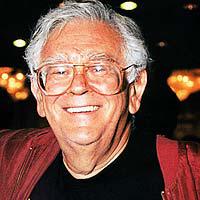This article has multiple issues. Please help improve it or discuss these issues on the talk page. (Learn how and when to remove these messages)
|
Joe Slovo | |
|---|---|
 | |
| Minister of Housing of South Africa | |
| In office April 1994 – January 1995 | |
| President | Nelson Mandela |
| Preceded by | New post |
| National Executive Committee member of the African National Congress | |
| President | Nelson Mandela |
| General Secretary of the South African Communist Party | |
| In office 1984–1991 | |
| Succeeded by | Chris Hani |
| Commander of uMkhonto we Sizwe | |
| President | Oliver Tambo |
| Preceded by | Nelson Mandela |
| Succeeded by | Chris Hani |
| Personal details | |
| Born | Yossel Mashel Slovo 23 May 1926 Obeliai, Lithuania |
| Died | 6 January 1995 (aged 68) Johannesburg, South Africa |
| Political party | African National Congress South African Communist Party |
| Spouses | |
| Military service | |
| Allegiance | Union of South Africa African National Congress |
| Branch/service | South African Army uMkhonto we Sizwe |
| Years of service | 1941–1945 1963–1990 |
| Battles/wars | Second World War Internal resistance to apartheid Rhodesian Bush War Angolan Civil War South African Border War |
| Part of a series on |
| Apartheid |
|---|
 |
Yossel Mashel Slovo (23 May 1926 – 6 January 1995), commonly known as Joe Slovo, was a South African politician, and an opponent of the apartheid system. A Marxist-Leninist, he was a long-time leader and theorist in the South African Communist Party (SACP), a leading member of the African National Congress (ANC), and a commander of the ANC's military wing uMkhonto we Sizwe (MK). Slovo was a delegate to the multiracial Congress of the People of June 1955 which drew up the Freedom Charter. He was imprisoned for six months in 1960, and emerged as a leader of uMkhonto we Sizwe the following year. He lived in exile from 1963 to 1990, conducting operations against the apartheid régime from the United Kingdom, Angola, Mozambique, and Zambia. In 1990, he returned to South Africa, and took part in the negotiations that ended apartheid. He became known for proposing the "sunset clauses" covering the 5 years following a democratic election, including guarantees and concessions to all sides,[1] and his fierce non-racialist stance. After the elections of 1994, he became Minister for Housing in Nelson Mandela's government. He died of cancer in 1995.[2]
- ^ "Negotiations: What room for compromise?". www.sacp.org.za. Archived from the original on 12 May 2018. Retrieved 25 January 2018.
- ^ Joe Slovo, Anti-Apartheid Stalinist, Dies at 68, NY Times, 1995-01-07.